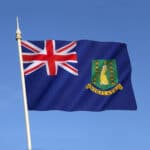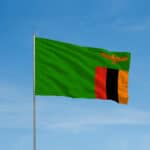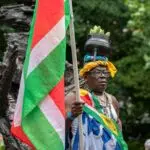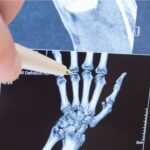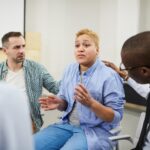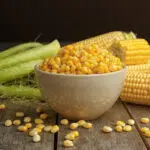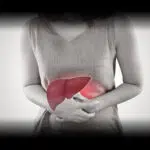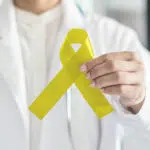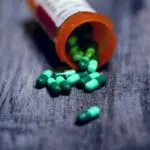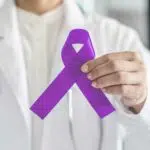It is not just older people who are affected by arthritis, children get it too — that’s why observing Juvenile Arthritis Awareness Month in July each year is so important. Founded by the Arthritis Foundation, this campaign aims to raise awareness about this condition and share resources to help those affected by it. Did you know, with kids, arthritis affects not just joints, but other organs too? Their immune system attacks their joints, causing swelling, stiffness, and sometimes permanent damage, which can get worse if left untreated.
History of Juvenile Arthritis Awareness Month
Even though the name ‘arthritis’ itself relates to the joints — it means ‘joint inflammation’ in Latin — juvenile arthritis can affect the eyes, skin, and the gastrointestinal tract. The term was first described in the 18th century by pediatrician Frederick Still. Acceptance for this illness took much longer, however, and it was only until a century later that a specialized center for juvenile rheumatism was established in Berkshire. The center’s original purpose was to treat people afflicted with rheumatic fever, which was prevalent in the years following the Second World War. As hygiene and nutrition improved, this disease declined. Soon, the center turned its attention towards children and juvenile arthritis, which was known as Still’s Disease back then. Dr. Barbara Ansell from the center was one of the first to recognize that the development of the disease, its progression, and response to treatment were different for different people. This unit operated for 39 years and has greatly contributed to the causes and outcomes of juvenile arthritis treatment we see today.Over the next century, such centers were established in Germany, too, but recognition from major organizations like the American Rheumatism Association (ARA) and the International League Against Rheumatism (ILAR) occurred later in the 19th century. The fact that this is a relatively rare illness, fewer physicians specialize in it, and pharmaceutical companies largely target adult markets means that therapeutic advancements in juvenile arthritis have been historically slow. The treatment gradually shifted from physical — physiotherapy and hydrotherapy, splinting, and surgery — to a drug-based regimen. Recent American history shows the Food and Drug Administration has supported many incentives to drive U.S. pharmaceutical agencies to include children, too, like their Best Pharmaceuticals for Children Act (BPCA) and Pediatric Research Equity Act (PREA).
Juvenile Arthritis Awareness Month timeline
Pediatrician Frederick Still, who works at Great Ormond Street Hospital in England, first describes this condition.
The Canadian Red Cross Memorial Hospital is founded in Taplow, Berkshire, for the study of juvenile rheumatism.
Organizations like the American Rheumatism Association (ARA) and the International League Against Rheumatism (ILAR) recognize that juvenile arthritis needs to be studied and treated properly.
Joint replacements in the hands and wrists are introduced to treat this illness.
The American Rheumatism Association (ARA) hosts the first Council on Pediatric Rheumatology at a time when there are fewer than 30 pediatric rheumatologists in the U.S.
Additional centers focused on juvenile arthritis are established.
Juvenile Arthritis Awareness Month FAQs
What color ribbon is for juvenile arthritis?
Blue ribbons are used to represent juvenile arthritis awareness.
Is juvenile arthritis serious?
Some types of juvenile arthritis can cause serious complications, like growth problems, joint damage, and eye inflammation.
Is juvenile arthritis a disability?
While not every child diagnosed with juvenile arthritis is disabled, the disease itself can be considered a disability.
How To Observe Juvenile Arthritis Awareness Month
-
Read (and learn) about juvenile arthritis
Learn more about juvenile arthritis, the types of arthritis that affect children, what are the common treatments available, and what you can do to support this cause and this month. You can get more information on the Arthritis Foundation website, which provides resources for parents, kids, and teens to manage medication, activity, and eating habits.
-
Raise awareness
The key to a successful cause is awareness. Go online with your story and share what you have learned about Juvenile Arthritis Awareness Month. Encourage others to observe this month, too. If you don't prefer social media for sharing your thoughts, make sure at least one other person knows about juvenile arthritis.
-
Host a community event
All through this month, the Arthritis Foundation runs conferences and camps for parents and children. You can talk to your community leaders about hosting similar events at the local pediatric facilities, taking inspiration from the above-mentioned website. Invite guest speakers or talk to those willing to share their fight with juvenile arthritis.
5 Interesting Facts About Juvenile Arthritis
-
Types of arthritis for different age groups
Certain types of arthritis rarely affect adults and only occur in children — the reverse is also true.
-
It is a chronic condition
Juvenile arthritis can last for months, years, or a lifetime.
-
Treatment can have good results
Juvenile arthritis can be controlled by medications, among other treatments, and children can go into remission, which can last for months, years, or even a lifetime.
-
Genes might determine risk
The siblings and first cousins of children with this illness are at an increased risk of developing juvenile arthritis, as studies done at the University of Utah indicated.
-
Arthritis (juvenile and adult) commands funds
Since 1970, more than 250 scientists have been funded, and from 2018 to 2019, the U.S. funded $1.6 million towards arthritis research, the CDC reports.
We’re learning more about this disease
-
We’re learning more about this disease
The more we learn about this disease, the bigger the impact we can create. Knowing that such an illness is possible, reading about it, and sharing this knowledge with our community can go a long way. Plus, since juvenile arthritis often goes undiagnosed or is misdiagnosed, understanding this disease means there is a lower chance of mistaking the symptoms for something else in case someone we know is affected by it.
-
A chance to do something about it
Volunteering, participating in trials, and even simply sharing information with others — there is a whole host of ways we can use our knowledge for good. This can make the future a little bit brighter for those affected by juvenile arthritis.
-
Build a support system for patients
Learning about juvenile arthritis helps us understand this disease and how it affects children more. We believe our increased awareness can spread to at least one other person we know, and from them to another person, and so on. Gradually, with each person, a sort of network of knowledgeable people who know how to assist children with arthritis and who can share resources will begin to develop.
Juvenile Arthritis Awareness Month dates
| Year | Date | Day |
|---|---|---|
| 2023 | July 1 | Saturday |
| 2024 | July 1 | Monday |
| 2025 | July 1 | Tuesday |
| 2026 | July 1 | Wednesday |
| 2027 | July 1 | Thursday |
















